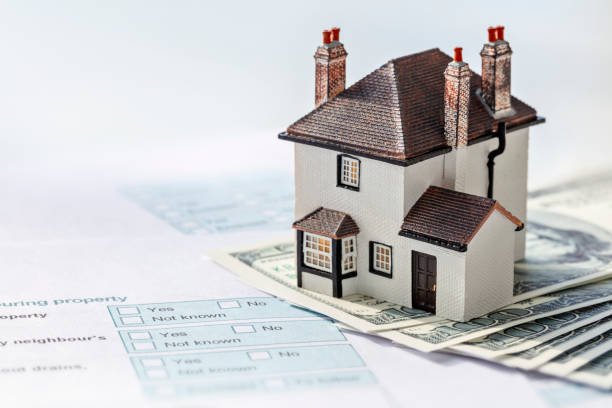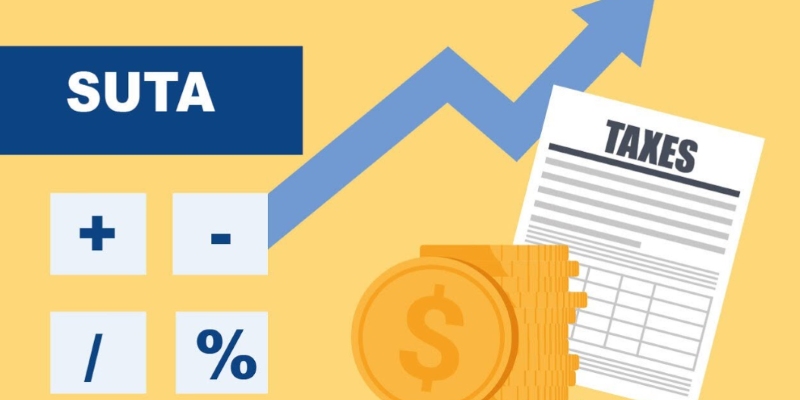How often can you refinance your home
Oct 02, 2023 By Susan Kelly
Do you feel like your home loan isn’t quite giving you what you need or that there may be a better deal out there? If so, then refinancing your mortgage could be the answer! Refinancing can help homeowners reduce their monthly payments and access additional cash.
But how often can one refinance their mortgage without suffering financial penalty? We will explore the details of refinancing and helping you decide if it is right for your plan. Read on to learn more about eligibility requirements and deed transfer costs.
Refinance Your Home

Refinancing your mortgage is the process of replacing your current home loan with a new one. It’s important to note that refinancing replaces the existing loan and does not result in additional borrowing.
Homeowners can refinance their mortgages for various reasons, such as reducing their interest rate or monthly payments, cashing out some equity, switching to another type of loan (such as from a fixed-rate mortgage to an adjustable-rate mortgage), or consolidating debt.
Different Types of Refinance your home

You should consider two distinct refinancing types when considering whether or not to refinance your home.
Rate-and-term refinancing
This type of refinancing helps you reduce your loan payments without having to take out additional money from the equity in your home. Typically, rate-and-term refinances are used to lower monthly loan payments and switch from an adjustable-rate mortgage (ARM) to a fixed-rate one.
Cash-out refinancing
With this type of refinance, you replace your existing loan and receive additional cash from the equity in your home. This money can be used for any purpose – including paying down debt, financing a home improvement project, or even taking a vacation!
Benefits of Refinance your home
Refinancing your home loan allows you to take advantage of various benefits. Depending on the type of refinance chosen, these advantages can include:
- Lower monthly payments.
- Reduced interest rates.
- Access to cash from built-up equity.
- Ability to switch from an adjustable-rate mortgage (ARM) to a fixed-rate one.
- Consolidation of bills with higher interest rates into one lower interest payment.
- Shortening or extending the length of your loan.
- Paying off existing debts faster and.
- Lower closing costs due to refinancing instead of taking out a second loan.
Drawbacks of Refinance your home
When considering whether or not to refinance your home, it’s important to understand both the benefits and drawbacks of refinancing.
- Higher interest rates. Depending on your loan type and current market conditions, your new loan may have a higher interest rate than your existing loan.
- Closing costs. In addition to an increase in interest rates, you will also be responsible for closing costs associated with obtaining a new loan – including title searches, appraisal fees, and attorney’s fees.
- Longer repayment period. Depending on the amount you borrow when refinancing, your repayment period could be extended – meaning you pay more over time due to additional years of interest payments.
- Access to cash in the future. As you refinance, you reduce your equity and access to cash in the future.
- Reduced tax benefits. Refinancing could result in reduced tax benefits depending on your loan program and other factors.
If done correctly, refinancing can be a beneficial tool for homeowners looking to gain financial security or flexibility – just make sure you know all the potential drawbacks before making any decisions! Take time to weigh all of these pros and cons when determining whether or not it is right for your plan. Understanding how often you can refinance your home is also key - as this will affect how much interest you pay over time.
How often can you refinance your home?
There is no set limit on how many times you can refinance your home – however, there are costs associated with each refinancing which could make it less desirable. Generally speaking, homeowners should expect to incur application fees, title insurance, closing costs, and other lender-specific fees.
If you’re refinancing your mortgage to get a lower interest rate or reduce your monthly payments, the result of this new loan may not be worth it if you don’t keep the loan for a long enough period.
When considering whether or not to refinance their home loan, homeowners should also consider any prepayment penalties associated with their existing loan. Some loans have language in them that requires borrowers to pay a fee if they decide to refinance before a certain date or within a specific time frame. If these restrictions are part of your existing loan agreement, then you should factor those potential extra costs into your decision.
Finding The Best Rates and Terms For Refinancing Your Home
When it comes to refinancing your home, the best rates and terms are determined by comparing multiple lenders. This is especially true for cash-out refinances since different lenders may have different policies regarding how much equity they will allow you access.
It’s important to shop around and compare all available offers before deciding. Getting pre-approved for a loan can help you understand your options and secure a lower interest rate if one is available.
Calculating the cost of additional refinances
The cost of refinancing your home can be determined by adding up the total amount of fees and costs associated with each refinance. This includes application fees, title insurance, closing costs, and other lender-specific fees. Investigating any potential prepayment penalties that may apply to your existing loan is important.
Once you understand these costs, you can compare them to the savings or benefits of refinancing – such as lower monthly payments or access to cash for home improvements.
By understanding the costs, benefits, and restrictions associated with refinancing your home, you can make an informed decision about whether or not refinancing is right for you. Refinancing could be a great way to reduce your monthly payments and gain access to additional cash.
FAQS
How long should you refinance?
This depends on your circumstances and goals. Keeping a refinanced mortgage for at least five years can be advantageous to maximize the return on your investment. However, a shorter-term loan might be more appropriate if you plan to move or need access to cash sooner.
What is the difference between remortgage and refinance?
Remortgaging and refinancing are essentially the same - they both refer to taking out a new loan and replacing your existing mortgage. The difference lies in terminology - a remortgage is more commonly used in the UK, whereas refinance is more common in the US.
Both involve taking out a new loan that replaces an existing one. In both cases, you will typically need to go through the same process of applying for a new loan and paying associated fees and costs. The main difference is that remortgage usually involves switching lenders, while refinancing can involve staying with the same lender.
At what point is it worth it to refinance?
This depends on numerous factors, such as your current mortgage interest rate and how much money you can save or access through refinancing. It is important to calculate the costs associated with each refinance so that you can evaluate if it is worth it for you. Homeowners should consider any potential prepayment penalties that may apply to their existing loan before deciding to refinance.
Conclusion
Understanding the refinancing process and learning when to refinance your mortgage can be complicated. It is wise to take the time to explore your options to determine which refinance plan best suits your current financial goals and circumstance. Taking control of the process by understanding what options are available and how they work will allow you to reap the most benefits and ensure that you have made an informed decision concerning refinancing your home. Keeping up-to-date with changing economic trends and taking advantage of new opportunities can help you stay ahead.
Key Takeaways from South Africa's Finance Minister’s Latest Budget

What Is a Purchase Money Mortgage and Current Investment Property Loan Rates?

All You Need to Know About the Child Tax Credit

Understanding Better vs. Guaranteed Rate Mortgages

How To Handle Multiple Offers On A House

Pay Off Your Automobile Loan Early

Strategies for Handling Missing Property Tax Bills: A Step-by-Step Approach

Token-Based Financing and cryptocurrency

Unlocking the Potential of Algorithmic Trading in Forex: An In-Depth 2024 Guide

